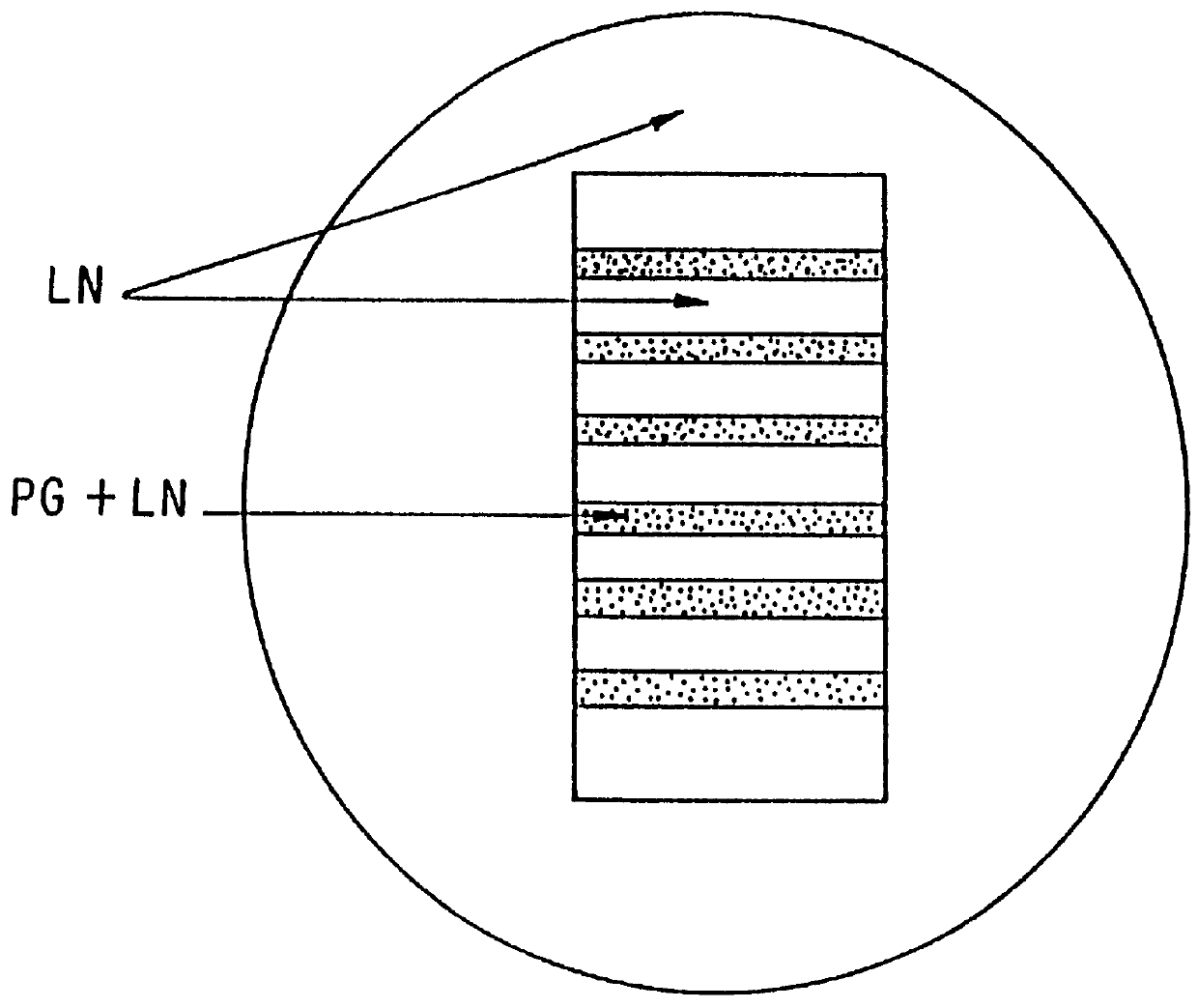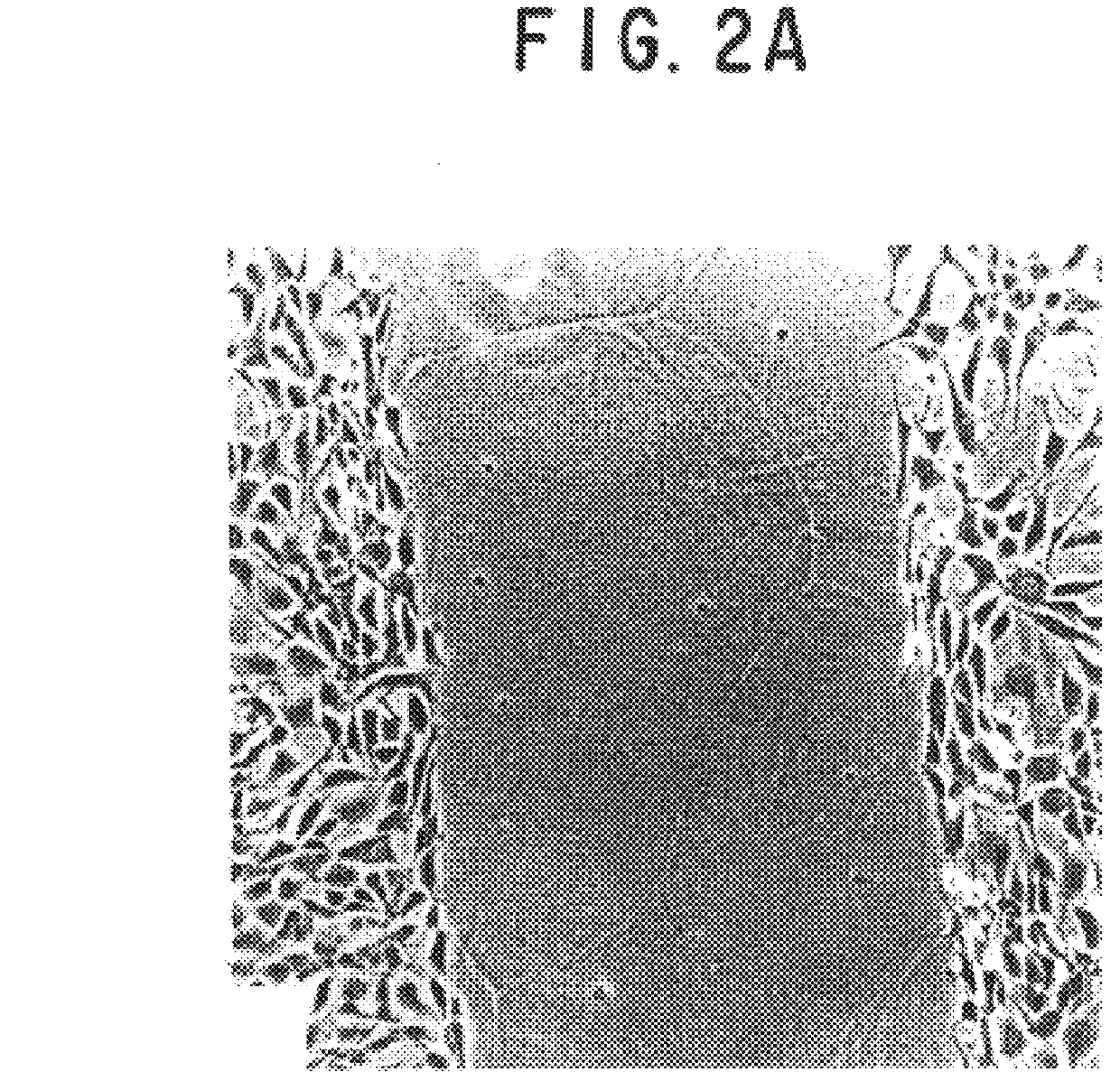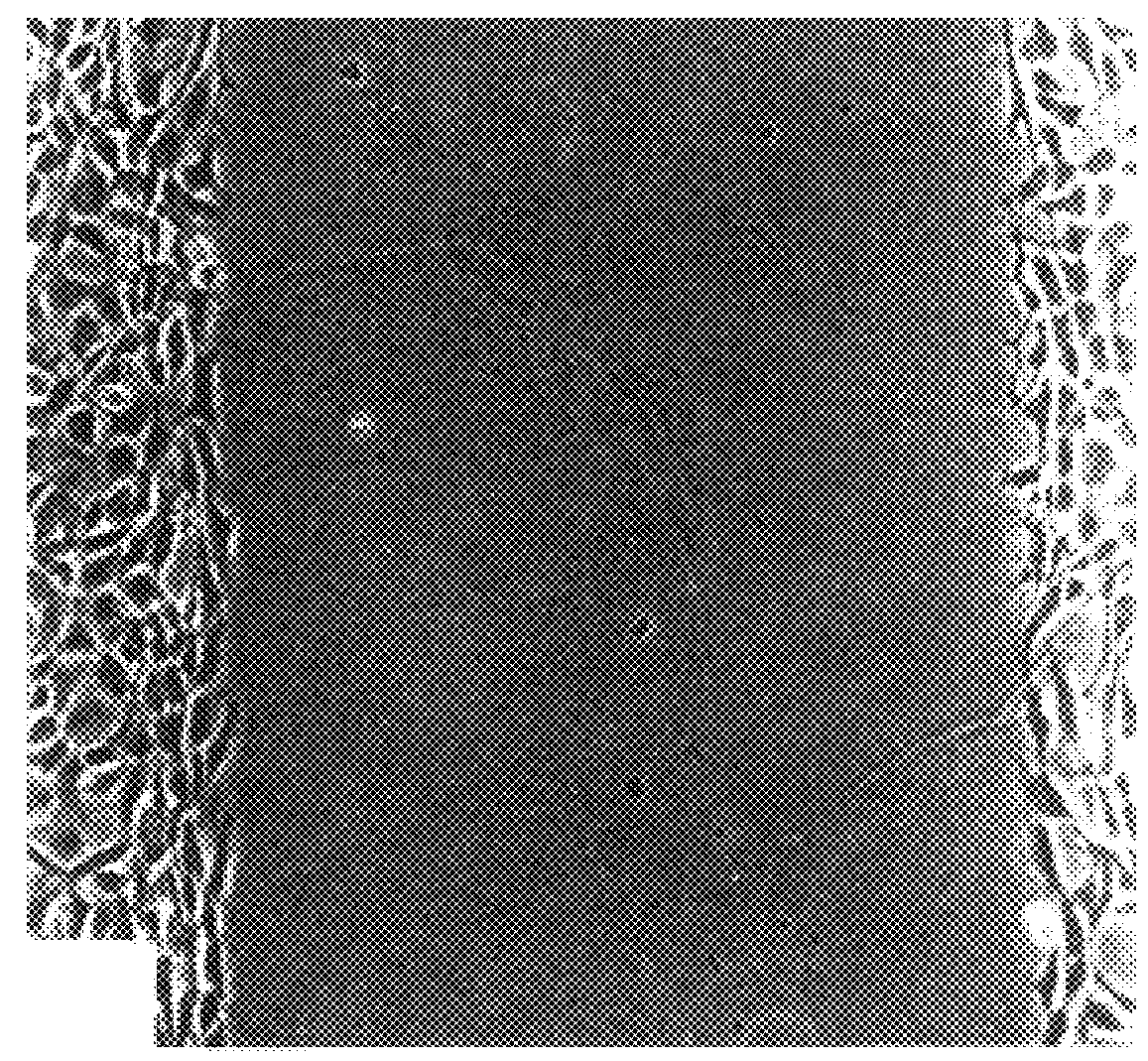Methods and compositions based on inhibition of cell invasion and fibrosis by anionic polymers
a cell invasion and anionic polymer technology, applied in the direction of macromolecular non-active ingredients, peptide/protein ingredients, aerosol delivery, etc., can solve the problems of scar tissue overgrowing the intended region, affecting the survival of the organ or tissue, and causing surgical adhesion, etc., to inhibit undesired bone growth, invasion, scar formation and fibrosis
- Summary
- Abstract
- Description
- Claims
- Application Information
AI Technical Summary
Problems solved by technology
Method used
Image
Examples
Embodiment Construction
The present invention relates to the discovery that certain biocompatible anionic polymers can effectively inhibit scar formation, in particular surgical adhesions, and that these anionic polymers, termed "inhibitory anionic polymers," generally inhibit fibrosis. The invention is predicated on the discovery that anionic polymers effectively inhibit invasion of cells associated with detrimental healing processes, i.e., fibrosis, and scarring. In particular, anionic polymers of the present invention are useful to inhibit fibroblast invasion, thus regulating the healing process and preventing fibrosis. The anionic polymers of the present invention can also inhibit glial cell invasion, bone growth, neurite outgrowth and monocyte / macrophage invasion. The present invention further relates to the discovery that the effectiveness of an anionic polymer at inhibiting cell, e.g., fibroblast, invasion correlates in part with the effective number of anionic charge groups on the polymer. Thus the...
PUM
| Property | Measurement | Unit |
|---|---|---|
| concentration | aaaaa | aaaaa |
| concentration | aaaaa | aaaaa |
| molecular weight | aaaaa | aaaaa |
Abstract
Description
Claims
Application Information
 Login to View More
Login to View More - R&D
- Intellectual Property
- Life Sciences
- Materials
- Tech Scout
- Unparalleled Data Quality
- Higher Quality Content
- 60% Fewer Hallucinations
Browse by: Latest US Patents, China's latest patents, Technical Efficacy Thesaurus, Application Domain, Technology Topic, Popular Technical Reports.
© 2025 PatSnap. All rights reserved.Legal|Privacy policy|Modern Slavery Act Transparency Statement|Sitemap|About US| Contact US: help@patsnap.com



